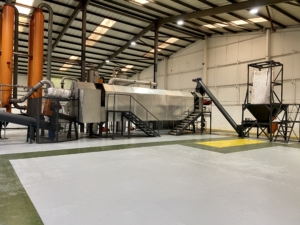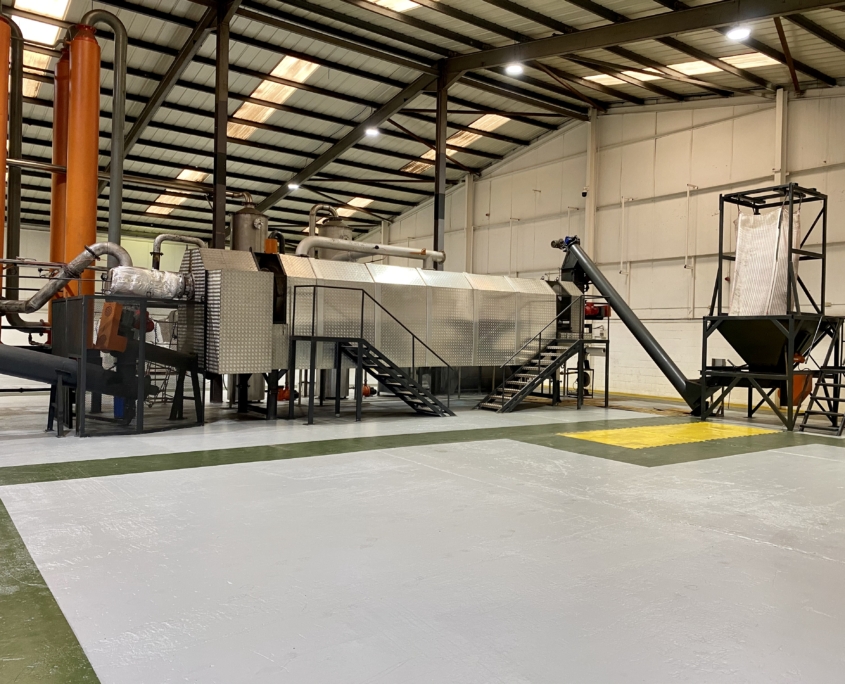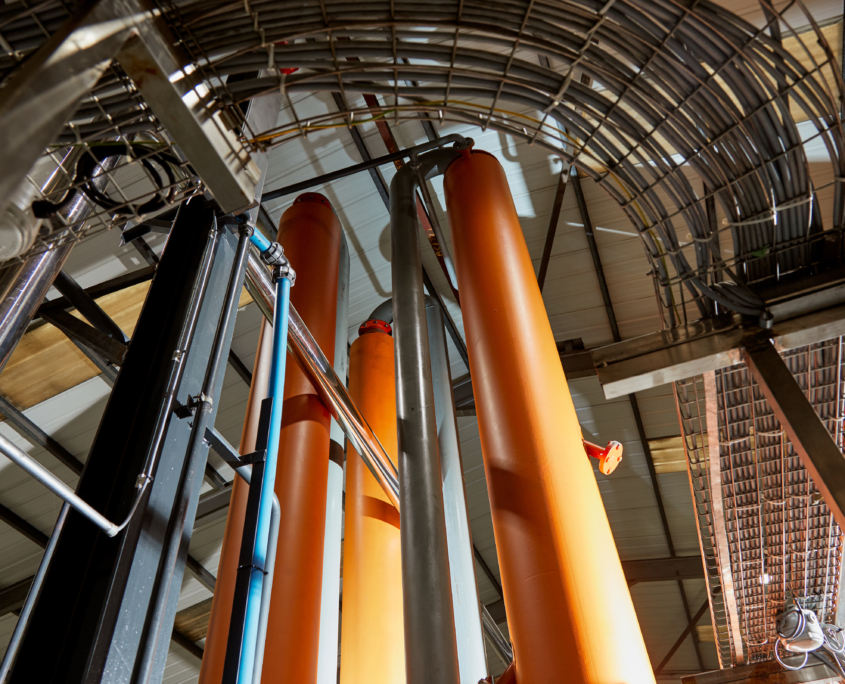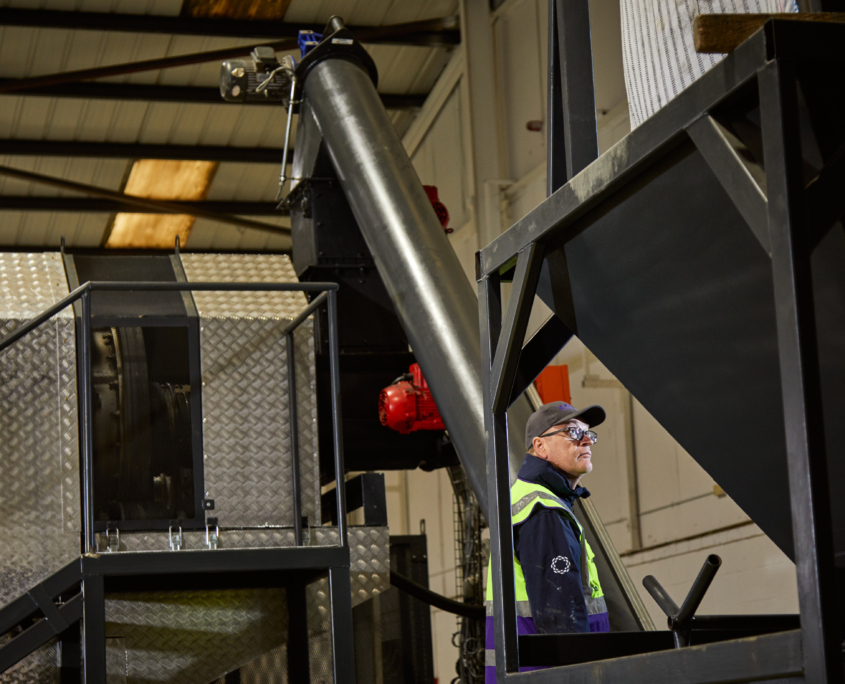Tyre recycling and energy generation – why the time is now
 IRR Waste 2 Energy’s continuous pyrolysis plant (Photo: Shaun Flannery/shaunflanneryphotography.com)
IRR Waste 2 Energy’s continuous pyrolysis plant (Photo: Shaun Flannery/shaunflanneryphotography.com)
IRR Waste 2 Energy discuss the reasons for increased innovation and interest in end of life tyre recovery in 2020
Early in 2020 the UK government suggested a tentative plan to ban the export of all end of life tyres (ELTs). The timing was unfortunate, with the challenges of the rest of 2020 becoming increasingly apparent at the start of spring. However, with strict recycling, energy from waste, and environmental targets to meet over the next twenty years or so, many companies are pressing ahead in raising awareness and innovating within the broad recycling sector. ELTs represent a particularly important part of the new era in recycling introduced by the UK’s Environment Bill, not least because of new and incoming measures internal and external against used and end of life tyre exports, a popular, yet often damaging solution to the problem. Rory Hughes, technical director at IRR Waste 2 Energy, and a waste and recycling expert with more than 35 experience in the industry, told Tyrepress why adopting a more holistic approach to tyre recycling is the way forward.
Tyrepress interviews Carlton Forest Group commercial director Graham White about the context behind IRR Waste 2 Energy’s continuous pyrolysis solution:
Tyres have been banned from British landfill since 2003 and shredded tyres since 2006. IRR Waste 2 Energy estimates around 50 million end of life tyres are generated by the UK each year. A network of accredited tyre collectors in the UK recovers, recycles and repurposes ELTs, but coping with the quantity generated is a challenge – hence the popularity of exporting. Hughes says that “it is imperative that we find ways that our industry can reap the benefits of waste tyres across construction, other by-products and energy.”
‘No time to waste’
IRR Waste 2 Energy’s continuous pyrolysis plant (Photo: Shaun Flannery/shaunflanneryphotography.com)
Hughes says cross-party parliamentary think tank Policy Connect’s ‘No time to Waste – Resources, Recovery and the Road to Net-Zero’ report highlighted the importance of prioritising an energy-from-waste policy that would see the nation tackling its waste problem sustainably. The report states that “we should, as other European economies do, treat residual waste as a valuable resource to produce low carbon heat and energy.”
Explaining that waste management should form a key part of the UK focus on being net-zero carbon by 2050, the report highlights that diverting waste away from landfill has to be the preferred option: “Every tonne of waste diverted from landfill to EfW saves 200kg of CO2, while generating low carbon energy and heat,” the report states.
It also stresses the importance of government support and intervention, and the role that they can play in driving forward investment initiatives to ensure more energy from waste initiatives are created to play a part in tackling waste management, recycling and non-fossil fuel energy generation. Hughes argues the private sector is “ideally placed” to begin to unlock the benefits of generating energy from waste such as end of life tyres. Yet, he adds that it is lack of cohesiveness that poses the most challenges for the energy from waste sector, as a whole.
Circular in more ways than one
Hughes says exploring the newest options for responsible tyre recycling presents a raft of opportunities to support the circular economy model and vision. Certainly, recycling tyres in a way that generates no further waste, either by repurposing them or supporting the energy from waste sector, would fall under that category. The tyre sector can therefore make a strong, positive impact on the UK’s waste handling. Hughes argues the industry should “embrace the challenge… to harness the possibilities of integrating tyres into a truly circular process.”
Why pyrolysis? The process subjects waste material, typically that which is hard to recycle, to heat yielding a by-product of oil and carbon char. Hughes says its “minimal environmental impact” and generation of “valuable commodities rather than further waste” allow it to “deliver a significant impact on recycling and waste from energy targets.” He adds that it “has the potential to enable a business to be able to go ‘offgrid’, reducing emissions, generating further commodities for sale, removing additional spend on fossil fuel generated power, and tackling our waste and recycling issues head-on.”
He advocates for the tyre industry to drive forward its “own waste to energy initiatives so that should an export ban be introduced, we were already making great strides into disposing of our waste tyres responsibly.” Emphasising support for the UK’s circular economy, Hughes concludes that “it seems to us that there’s a lot of untapped potential in relation to tyres and waste to energy.”
- IRR Waste 2 Energy’s continuous pyrolysis plant (Photo: Shaun Flannery/shaunflanneryphotography.com)
- IRR Waste 2 Energy’s continuous pyrolysis plant (Photo: Shaun Flannery/shaunflanneryphotography.com)
- IRR Waste 2 Energy’s continuous pyrolysis plant (Photo: Shaun Flannery/shaunflanneryphotography.com)
- IRR Waste 2 Energy’s continuous pyrolysis plant (Photo: Shaun Flannery/shaunflanneryphotography.com)







Comments